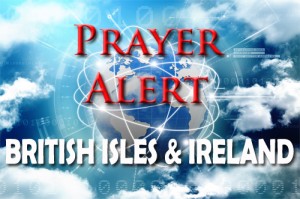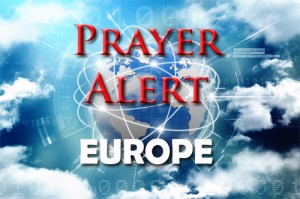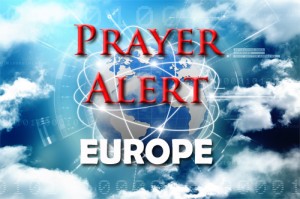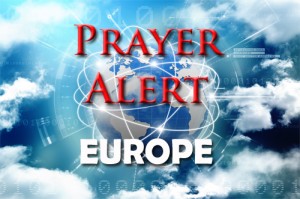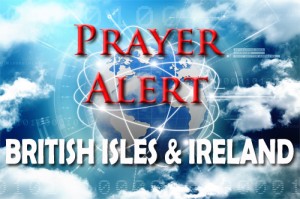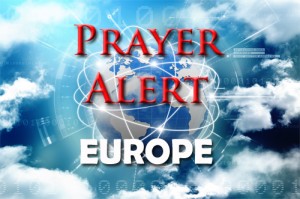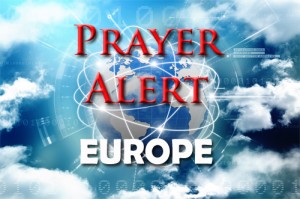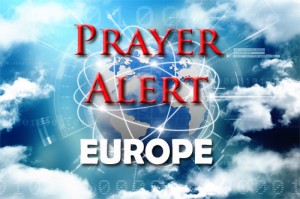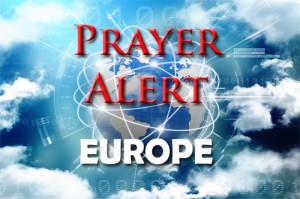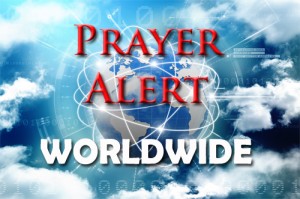Displaying items by tag: Europe
Brexit and ‘political posturing’
‘Posturing’ by Brussels in Brexit negotiations is posing high risks for businesses on both side of the talks. Welsh UKIP MEP Nathan Gill said that the EU's obsession with three key Brexit issues is causing unnecessary harm and asked, ‘In this divorce bill, who are the children? In a divorce you consider the children and the children in this instance are the businesses of Europe, the traders.’ He said that if he were a German manufacturer or a French wine producer selling to Britain, he’d be very annoyed at Michel Barnier’s stubbornness. Britain has contributed massively to the EU for many years (the second largest contributor), so many believe that the loss of such a benefactor should prompt the EU either to persuade Britain to stay or make negotiations easier. Pray for an end to veiled threats and a refusal to talk about the future until after sums of money are agreed upon.
Austria: election result
The commanding victory of populist parties in the national election will reverberate beyond Austria. Sebastian Kurz, when foreign minister, closed routes through the Balkans for immigrants, and his party spearheaded laws banning full-face Muslim veils in public spaces. His political rise follows the far right gaining influence in Germany last month. Nationalist and anti-immigrant forces across the EU are feeling emboldened by the vote, which could bring the Islamophobic Freedom Party to power in a coalition government in Vienna. The People's Party want to fine migrants who refuse to attend integration and language classes, but the Freedom Party calls for dropping such classes completely. It has also pledged to deny migrants access to welfare payments altogether. If the two parties became coalition partners, Austrian politics would take a seismic shift to the right.
Gender: times are changing in Europe
Children are dealing with questions like ‘You look like a boy or girl, but do you feel you really are a boy or girl? You can choose who or what you want to be’. On trains in the Netherlands the announcer no longer says ‘ladies and gentlemen’, but ‘travellers’. Many churches avoid the gender-neutrality topic, hoping they will not have to deal with it; in other churches the ‘law of relativism’ has entered and everything is possible. Christians believe that God created man and woman, and marriage is for a man and woman. We are living in a broken world, but when the brokenness becomes the normal standard, we should be awake as a Church and stand up and fight. There is more going on than we can see with our natural eyes and our pastoral hearts.
Albania: prayer needs
In this Islamic country, only 0.4% of Albanians are evangelical Christians; 14.3% live below the poverty line, and there are over 8,000 refugees. We can praise God for the relatively good sense of unity and peace among people of different religious faiths, and the Church continues to grow. Many claim that concentrated intercession is responsible for Albania’s openness to ministry. May a prayer movement be raised up within the country, to pray for all the region. Pray that unsaved members of Christians’ families will come to repentance and faith in Jesus Christ. There are three complete translations of the Bible in Albanian: one literal, one paraphrased, and one Catholic. Pray for widespread use of the Scriptures.
Proposals for new deal with the EU
In a statement to MPs, Theresa May called for a ‘unique and ambitious economic partnership’ with the EU after Brexit. ‘Progress will not always be smooth’, she said, but the UK can ‘prove the doomsayers wrong’. Following her speech in Florence, when she gave assurances on payments to the EU and citizens' rights, she said the ball is now in the EU court. Her statement came as the fifth round of negotiations began in Brussels, the final set of talks before EU leaders meet on 19 October to decide if enough progress has been made to enable them to move forward and talk about post-Brexit trade relations with the UK. Two white papers, covering future trade and customs options, are being published (see next article). Justice minister Dominic Raab said that while the UK had to ‘strive for the very best Brexit outcome’, it must also ‘prepare for all eventualities’. ‘No-deal Brexit planning is under way'.
Balkan nationalists take hope from Catalan referendum
Catalonia's drive to separate from Spain is rekindling dreams of independence in ethnic pockets across the Balkans - a dangerous ambition in a region where nationalist violence claimed tens of thousands of lives in the 1990s. Among ethnic Albanians in southern Serbia and the Serbs of Republika Srpska, in the wake of the ‘banned’ Catalan referendum, separatist leaders are asking the same question: ‘Why don't we do the same?’ On the election day, graffiti of Catalan flags appeared several towns in the Serbian province of Vojvodina, along with the claim that ‘Vojvodina = Catalonia’. Meanwhile, in the southern Bosnian town of Mostar, a giant banner appeared near the cathedral showing the flags of Catalonia and Herceg-Bosna, the self-styled Croat entity, reading ‘Good luck. We are the next.’ Local media are saying, ‘The fact that one region (Kosovo) managed to secure independence has emboldened many like-minded leaders in the region’.
Russia: peaceful protesters detained on Putin’s birthday
Over 250 supporters of opposition leader Aleksei Navalny were arrested as they held peaceful protests in eighty cities across Russia on Putin’s birthday. They were demanding that Mr Navalny be allowed to stand in the March 2018 presidential elections. He is currently jailed for organising public meetings, and the authorities say he cannot stand in the elections because of a suspended sentence. Amnesty International said, ‘The Russian authorities must immediately and unconditionally release scores of peaceful protesters detained, and investigate allegations that the police used abusive force. The Kremlin’s intent is to choke the life out of the protest movement, but it has also become clear that this reproachful goal cannot be achieved. Peaceful protest is a right, and many people in Russia want to exercise that right.’ See:
Spain: Catalan referendum
Catalonia has its own history, language and culture. It has both ‘nationality’ status and autonomy within the Spanish constitution. It also has a history of nationalist politics. On 1 October there was a referendum on Catalan independence that the Spanish government declared unlawful. Catalan volunteers guarded polling stations, not from criminals, but from the police. Social media images depict Spanish police kicking non-violent protesters, throwing them down stairs, breaking into buildings, and holding back Catalan police who were trying to help voters - police in a stand-off against each other! The Spanish police managed to force the closure of 93 of 2,000 polling stations. In Spain’s Basque country, other independence-minded people are watching closely. ETA (a Basque terrorist group) has been respecting a ceasefire for many years. Some are wondering what it will do now. Spain is a member state of the Council of Europe, whose primary role is to promote democracy throughout the continent. See
Iceland wants to eliminate Down’s syndrome
The only Baptist pastor in Rekjavik doesn’t want Down's syndrome eliminated. ‘My family has spent a lot of time at the hospital. For over a year our five-year-old son has been undergoing chemotherapy for leukaemia. Our youngest son, born this April, also spent two months at the hospital as doctors ran tests on him, finding a genetic mutation in his X chromosome that only two other people in the world have been diagnosed with. Every day, as I walked into the intensive care unit at the hospital, I looked over a wall of pictures of young children and teenagers holding up photos of themselves as premature babies. They were born after as little as 21 or 22 weeks of pregnancy.’ Meanwhile, there is talk of new legislation which would make abortion available in the 22nd week of pregnancy. Recently this issue took the internet by storm, with a report on how the country (population 340,000) is on the verge of eliminating Down’s syndrome.
India’s prime minister and human rights
On 6 October, Donald Tusk, president of the European Council, and Jean-Claude Juncker, president of the European Commission, will meet India's prime minister Narendra Modi in New Delhi. Alliance Defending Freedom (ADF) International, a human rights group, urges the EU leaders not to 'turn a blind eye' to the rising persecution of Christians and Muslims in India. 'How many more victims of government-condoned violence against Muslims and Christians will the EU tolerate before it puts the issue on the agenda with Prime Minister Modi?’ No person should live in fear of being killed, tortured, or oppressed because of their religious beliefs. The persecution of religious minorities in India has become worse under the government of the BJP, which is the political arm of the nationalist Hindutva movement. The party has been accused of inciting hatred and riots against religious minorities, including Christians and Muslims.
